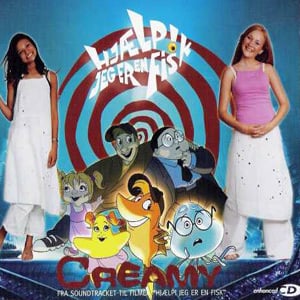New York, NY (Top40 Charts) Long-playing records and 78s became immensely popular with the general public in the 1930s and 1940s, major record labels began to get in on the fun. Decca, Columbia, and RCA Victor all released music for children during these two decades, usually novelty tunes sung by popular actors of the day, light classical music, cowboy ditties, or songs from animated Disney films. A few labels, such as Golden Records and Young People's Records/Children's Record Guild, were established specifically and solely for distributing children's music. Just like mainstream music for adults, children's music has a history all its own. This short introduction to the world of kids' music will highlight important names and developments that helped make children's music what it is today. As the 1950s rolled around, the general perception of children's music was about to be changed forever. Pete Seeger, Ella Jenkins, and Woody Guthrie all released albums during this decade that forever changed the way parents and educators thought of music for children. Seeger's American Folk Songs for Children, Guthrie's Songs to Grow On for Mother and Child, and Jenkins' Call and Response: Rhythmic Group Singing were all released on the Folkways label in 1953, 1956, and 1957, respectively.
Pete Seeger was a collector of folk music, heavily involved with leftist political movements of his time. His work with the Weavers and his own solo performances had made him a household name by the early '50s, and American Folk Songs catapulted him into the position of Grandfather of Children's Music, beginning a career-long dedication to entertaining and educating children with historic songs and nursery rhymes from our nation's past. Children's music is music composed and performed for children by adults. Influenced artist contexts this means music, usually songs, written specifically for a juvenile audience. The composers are usually adults.
Creamy was a Danish teen-pop duo, composed of Rebekka Mathew and Rannva Joensen.
Their 1999 debut album, Creamy, made when the pair were just thirteen years of age, was composed of euro-pop versions of children's songs. In 2001, they released a seasonal album, Christmas Snow. Their only single in the UK was a euro-pop cover of the theme song to the 1984 movie, Neverending Story, which was featured on their second album, We Got the Time. They were signed to RecArt
Music Denmark. Their album, "We Got the Time" was produced by Ole Evenrud, of
A*Teens fame. Ole Evenrud also produced a version of a song from that album, "Help! I'm a Fish (I'm a
Little Yellow Fish)", for the Danish pop group,
Little Trees. After their appearance on Dancemania
Speed 10 with a speedy remix of their song "
I Do I Do I Do" in late 2002,
Creamy appeared on this eurodance compilation series featured in Hello Kitty music video of their song "Little Kitty".
























